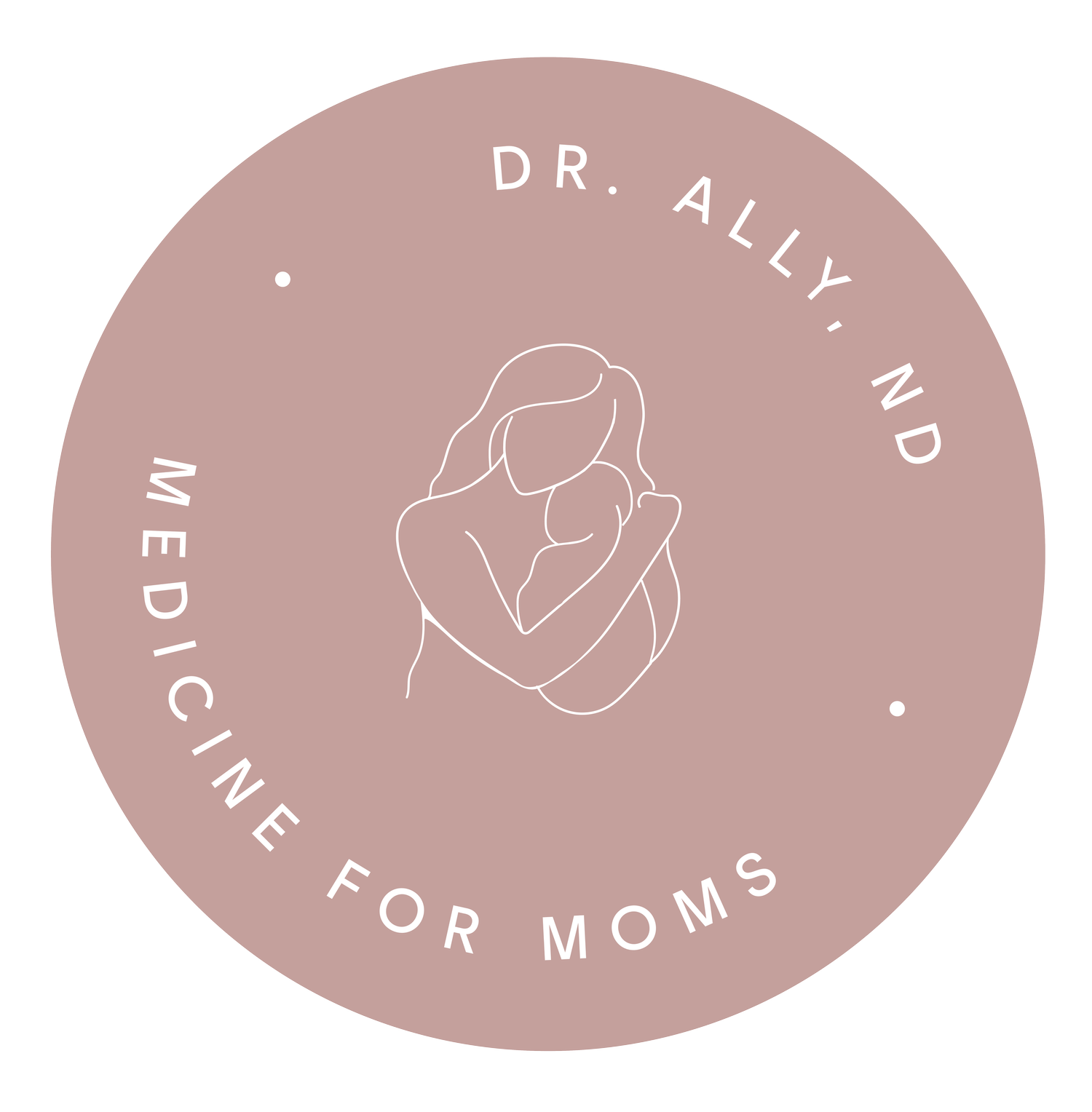Importance of Iron during Pregnancy
As women, one of the things we often hear if we are feeling tired, is - ‘have you had your iron checked?’. Though fatigue is one of the main symptoms, there are many other signs or symptoms your iron may be low (see below). Though the symptoms are similar whether you are pregnant or not, there are specific reasons why it is important to have adequate iron if you are pregnant
Iron deficiency is the most common cause of pathologic anemia during pregnancy and can pose health concerns for both the mama and the babe. And unfortunately, it is quite common! The WHO estimates approximately 40% of pregnant women are anemic, and the risk is even higher in African American women.
You can be iron deficient without having iron deficiency anemia, and women who are deficient in iron going into pregnancy, can easily become anemic during pregnancy because of the increased demands. Therefore, I carefully monitor them during pregnancy.
Why do we care?
Not only do you feel crappy when you are deficient in iron, research also suggests being anemic during pregnancy may pose risk of some adverse pregnancy outcomes. Additionally, there may be increased risk of preterm delivery, low birth weight babies, and small for gestational age babies. Though more research is needed to determine an exact causation, to me, these factors make it worth being diligent about women being properly screened. It is after-all, a simple blood test.
Reasons your iron demands increase.
During pregnancy, your iron needs are higher than when not pregnant. This is because,
Your blood volume is increasing
Your iron is used to create your babies red blood cells
Your baby uses your iron to grow
These are just basic reasons. If someone has any other condition that impairs absorption of iron (ie: inflammatory bowel disease), or other reasons for low intake of iron (ie: nausea and vomiting of pregnancy), the risk of deficiency can be even higher.
Signs or symptoms your iron may be low.
Though fatigue is the main symptom we think about when we think of someone being iron deficient, there are other symptoms that may indicate it as well including:
Fatigue
Restless legs syndrome
Headaches
Exercise intolerance
Easily short of breath
Weakness
Craving ice (pacophagia)
Sometimes, patients will only have symptoms they are experiencing and there are no external signs of iron deficiency. But sometimes, we notice signs from the outside on a physical exam, or you may notice them yourself. These can include but are not limited to,
Paleness of the skin
Dry skin
Cracks in the corners of your lips
Depressions in the nails
Hair loss
What are the next steps?
In simple forms - blood work!
If you are feeling these symptoms, or notice these signs, it is worth contacting your pregnancy care provider to have your iron levels assessed. Your iron would typically have been screened through your blood work in the beginning of pregnancy, but it is worth bringing up to your providers if you are feeling these symptoms later on in your pregnancy.
Treatment of low iron
If your blood work demonstrates that you are low in iron, there are many options for treatment, and it always needs to be individualized. It is important that you do not begin taking iron supplements in assumption that you are deficient without having your levels checked, and getting appropriate dosing from a practitioner.
First, we need to ensure there are no other reasons, other than being pregnant, that your iron is low.
Second, I will assess your dietary intake and educate you on how to incorporate iron most effectively.
Third, supplemental iron may be considered depending on your levels, and dosing and iron form will be individualized to you. Iron taken orally can be hard on the stomach, so I will work with you to find a product that works the best, and causes minimal side effects
Fourth, I will ensure that you are not inhibiting iron from being absorbed in any way.
Finally, in some cases an IV iron transfusion is indicated in which I can refer you out for.
Once you are being treated for iron deficiency, keeping up to date on your lab work is important to ensure adequate dosing moving forward.
A note on postpartum iron levels
Not only are adequate iron levels important during pregnancy, but they are also important to stay on top of postpartum. Approximately 250mg of iron can be lost during delivery! Additionally, if you are breastfeeding, your demands are even higher!
I see a lot of women postpartum to continue their iron screening that they were doing with their primary pregnancy care providers, and adjust their dose accordingly. If you are curious about your iron status, please reach out and we can either have an appointment together, or I can help guide you to a practitioner in your area.
A summary
Signs your iron might be low include fatigue, hair loss, restless legs, exercise intolerance (ie: easily short of breath), and more.
Iron needs increase significantly during pregnancy and deficiency should be screened for as anemia may have negative impacts on both the mom and baby.
Don’t take iron supplements without the guidance of a practitioner so you can ensure you are on an adequate dose but not one that is too high
Staying up to date on your blood work to ensure you are getting adequate iron throughout pregnancy, and into the postpartum period is important.
Questions? I’d love to hear from you!
References
PMID 22718605
PMID 28697657
PMID 26314490

